tecznotes
Michal Migurski's notebook, listening post, and soapbox. Subscribe to ![]() this blog.
Check out the rest of my site as well.
this blog.
Check out the rest of my site as well.
Jan 20, 2014 7:26am
talk notes, urban airship speaker series
Nolan Caudill extended an invitation to come speak at the Urban Airship Morning Liftoff Speaker Series last week, and I was happy to have the chance to put into words and pictures some of what I’ve been working on at Code for America. Our amazing class of 2014 fellows just started, and we’ve been rushing to fill their heads with stuff before sending them off to their city residencies for the month of February. I’m so excited about the current class; it’s the first time I’ve been here for the full year (I joined in May of last year).
The notes below are a partial summary of my talk from Friday morning. I adapted some elements from my November keynote at Citycamp Oakland, and some thoughts that I previously put into my keynote at TransportationCamp West.
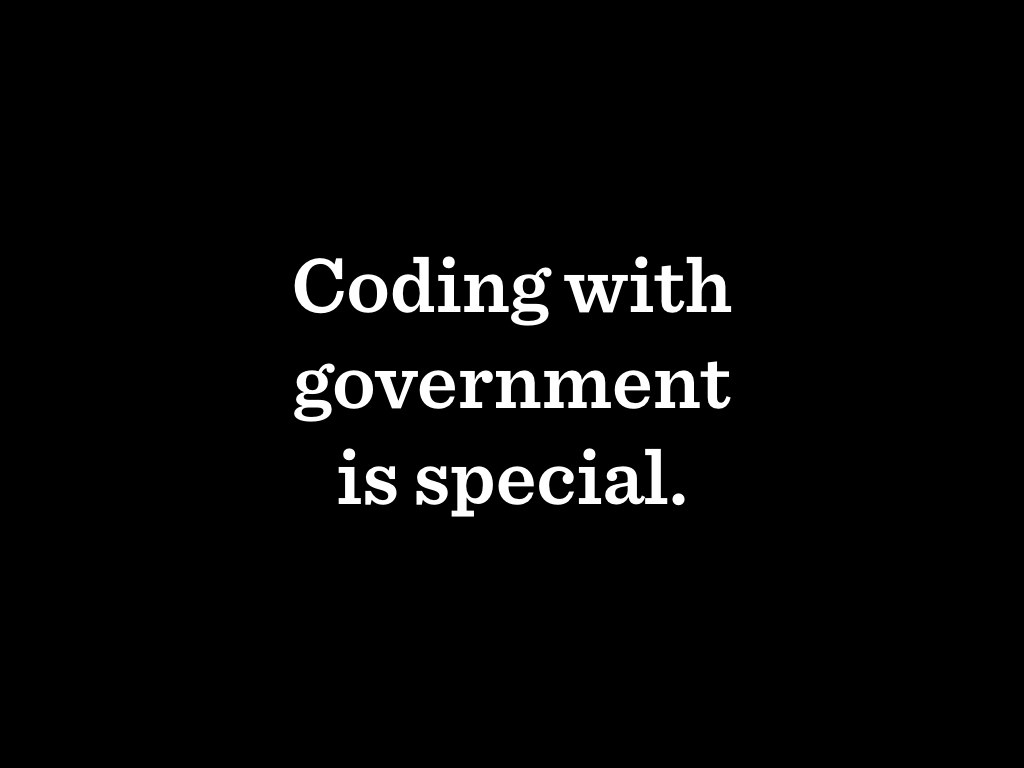
Coding with government is special. Government operates at longer time scales than startups, and remembers a time when information technology used to mean paper.
Paper is easy to mock. Jon Stewart has been taking the Veterans Administration to task for months now, about their massive backlog of outstanding medical claims. The floor under these boxes is supposedly having structural problems:
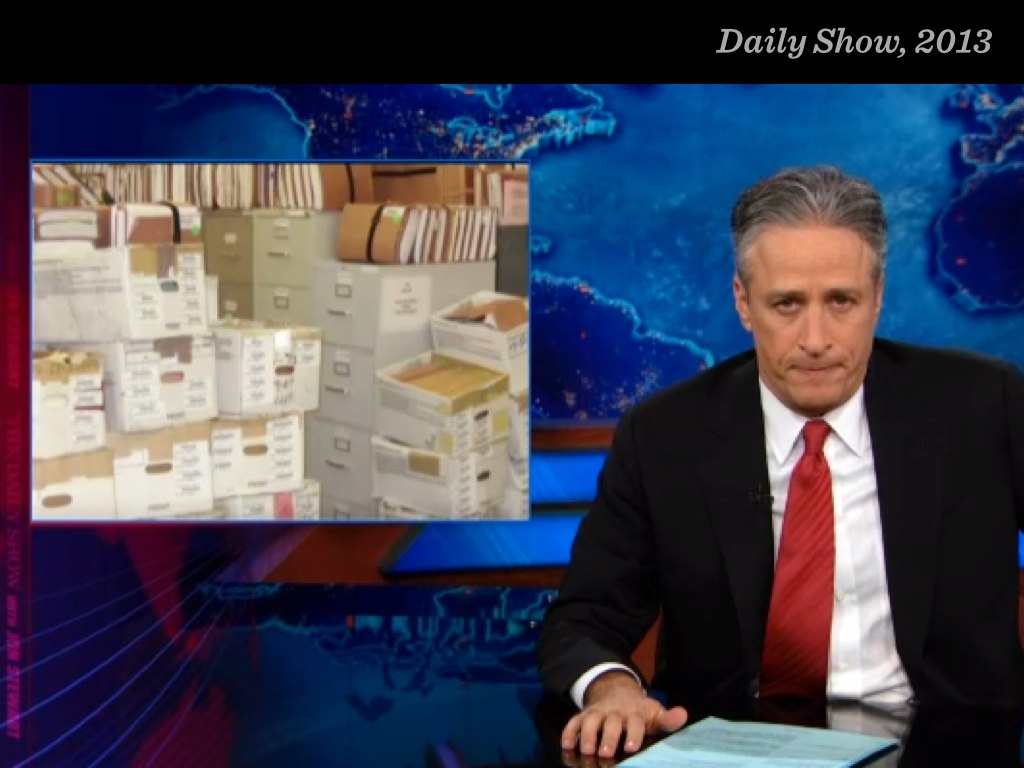
Paper is easy to mock, but it takes people with hearts and brains to move it around, and often the human processes around paper form communities of practice to get things done better and more effectively than simply computerizing everything.
A useful question, then, is how our current code and technology choices at CfA might better preserve what’s good about the old while still introducing the innovation of the new?
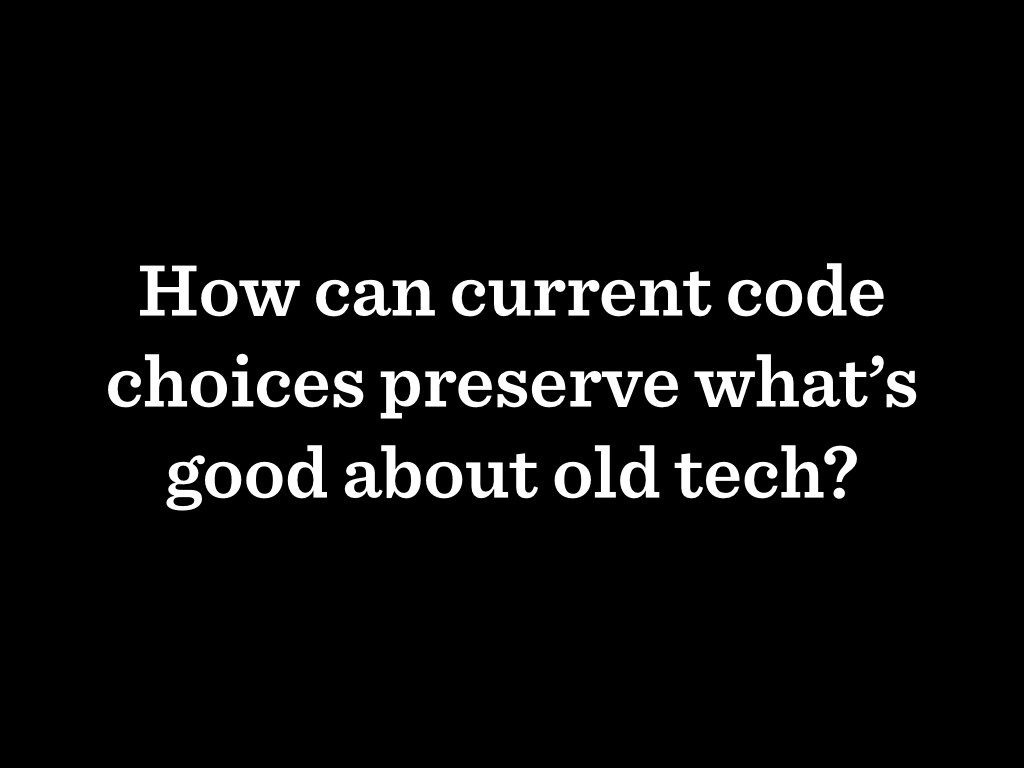
Three important technical goals can help: resiliency to environments and expectations, error-friendliness for developers and users, and sustainability for makers and caretakers.
I’m thinking of resiliency to two factors: environments, and expectations. I love this photo of Carlos Valenciano shutting down Kansas City’s IBM mainframe, the same one that he turned on almost two decades ago:
The technology environments used by local governments are changing, from heavy mainframes to smaller, more nimble systems, often open source like the work we do at CfA. This year’s project with Louisville, the Jail Population Management Dashboard, was developed with portability across environments in mind. Shaunak, Marcin, and Laura developed a supple and gorgeous visualization environment, and backed it with a conservative, cleanly-documented backend layer written in PHP and SQL Server. Those are two decidedly un-sexy technologies, but the bright seam between front-end and back-end allowed Denver to adapt the dashboard to their own purposes with their own compliant backend. Resiliency.
Adapting to new expectations means riding the border between commerce and culture. I’m not yet comfortable with the right wording here, but CfA has benefited greatly from the positive perception of helpful techies planning civic hackathons. Can this perception last? Or isn’t it our mission to work on stuff that matters so we can push the work to the unsexy societal gaps where needs are unaddressed?
Error-friendliness is term I’ve borrowed from Ezio Manzini’s paper on suboptimality: “low specialisation or ‘suboptimality’, regarding a certain purpose, is a strategic valuable property for biological organisms, summoned to confront themselves, in time, with potential environmental changes.” Developer error friendliness is permission to deliver work that’s suboptimal in strategic ways that allow it to be touched, tweaked, and modified piecemeal over time. The enemy here is premature efficiency: the Don’t Repeat Yourself or Convention Over Configuration principles, when taken to extremes, are two ways in which we rob ourselves of clues to intent in code.
David Edgerton’s Shock Of The Old offers additional hints:
As the British naval officer in charge of ship construction and maintenance in the 1920’s put it: “repair work has no connection with mass-production.”
City information technology is more like repair work than mass-production. Code that addresses user needs must be fit to those needs, and there’s rarely a mass-market product to be found that can do this without adjustment and tweaks. This similarity to repair is an advantage: the approach is more craft-like, more custom, and therefore carries with it more opportunities for learning in the agile/lean sense. For what it’s worth, this is also a summary of what I think went wrong with the 2013 relaunch of Healthcare.gov: a commodity-style purchasing mentality applied to a totally new service, with no opportunity for experimentation and learning hiding in that massive price tag.
User error-friendliness is a related concept. Try searching for a birth certificate in our Oakland public records application RecordTrac, and you’ll be immediately pointed toward the County of Alameda's Clerk-Recorder's Office (510-272-6362 or acgov.org/auditor/clerk) for this commonly-encountered mistake. Small-scale, repair-like moves continually nudging users toward the things they actually want.
Sustainability is about who can modify a system, and who can verify that it’s working. Github and “learn to code” are necessary but not sufficient answers to this problem, and it’s not enough for us to simply throw code over the fence when we’re done. Care must be taken that README documents say the right things to the right audiences, that basic architectural principles of the web are honored, and that we’re not landing anyone in hot water by delivering indecipherable weird (a.k.a. “Node for America”).
We’ve built some minimalist instance monitoring services and adapted a repository testing app to help make this last part a reality, and we’ve got a full plate of work planned for this year to help our fellows do their best work.
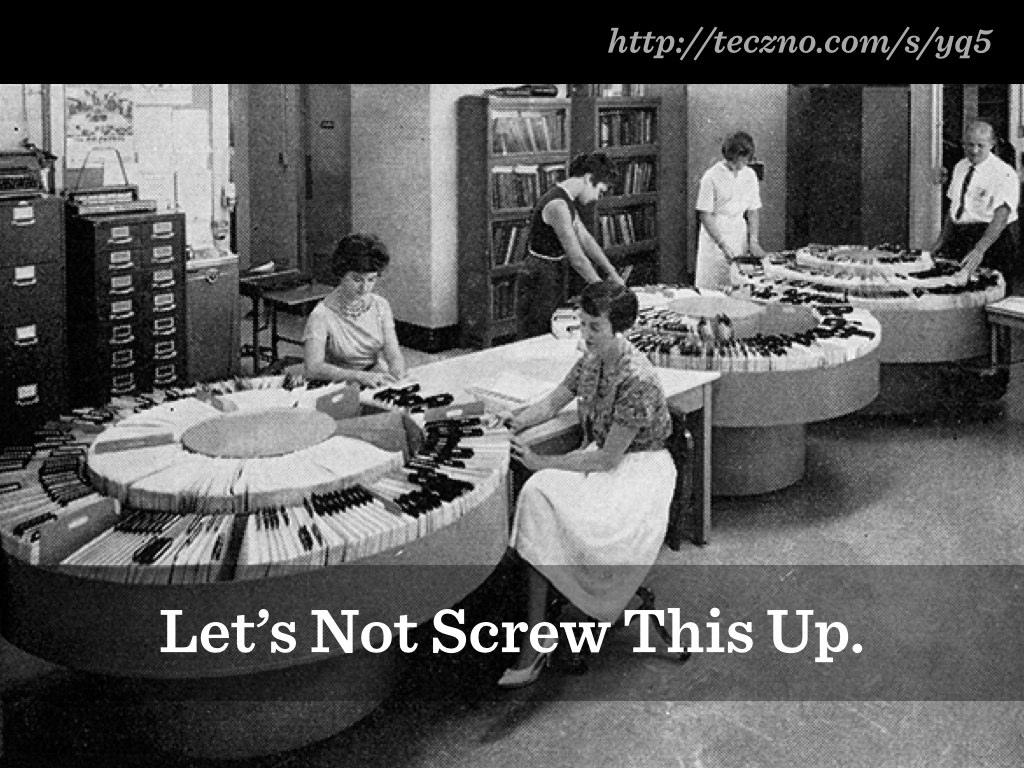
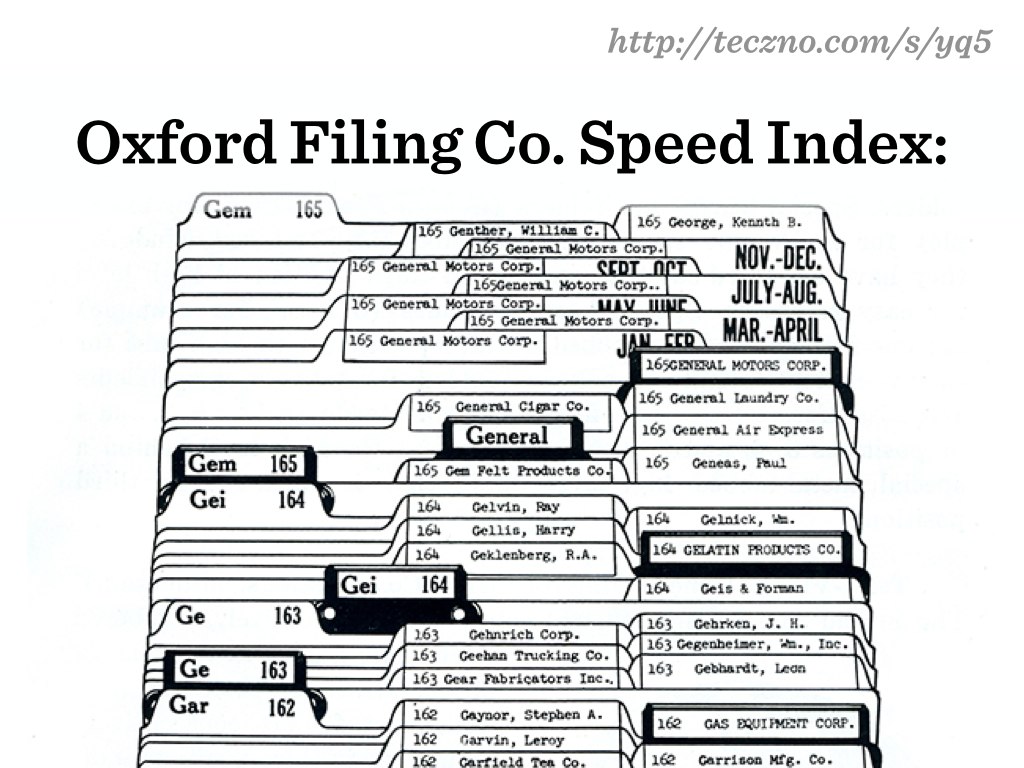
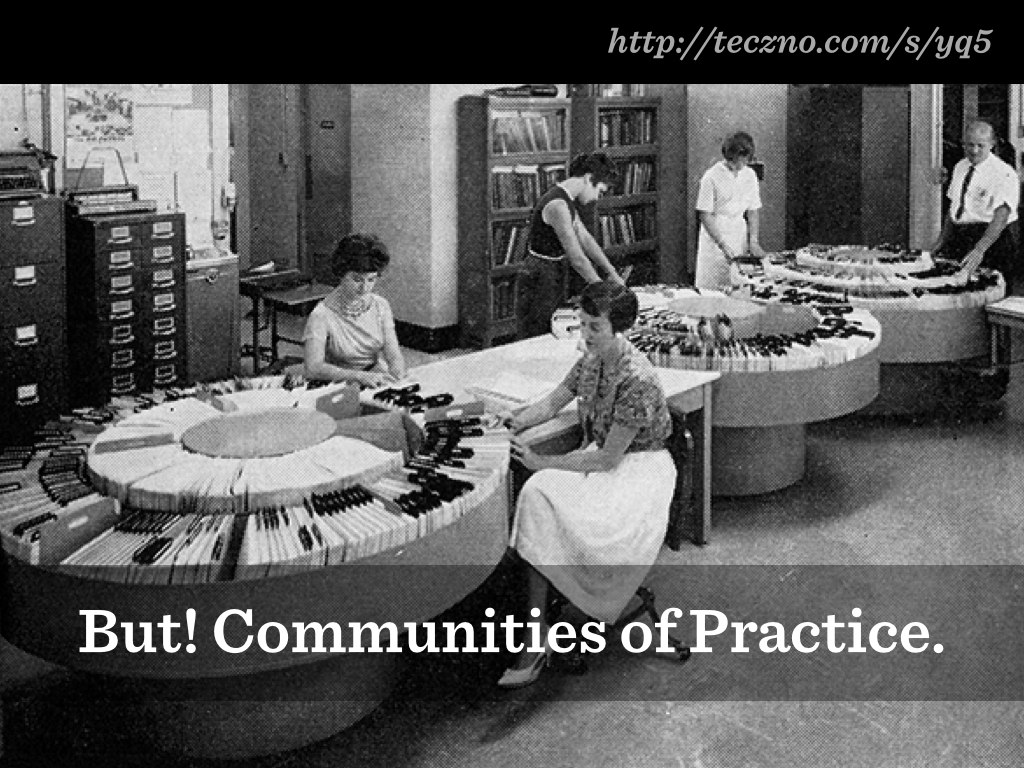
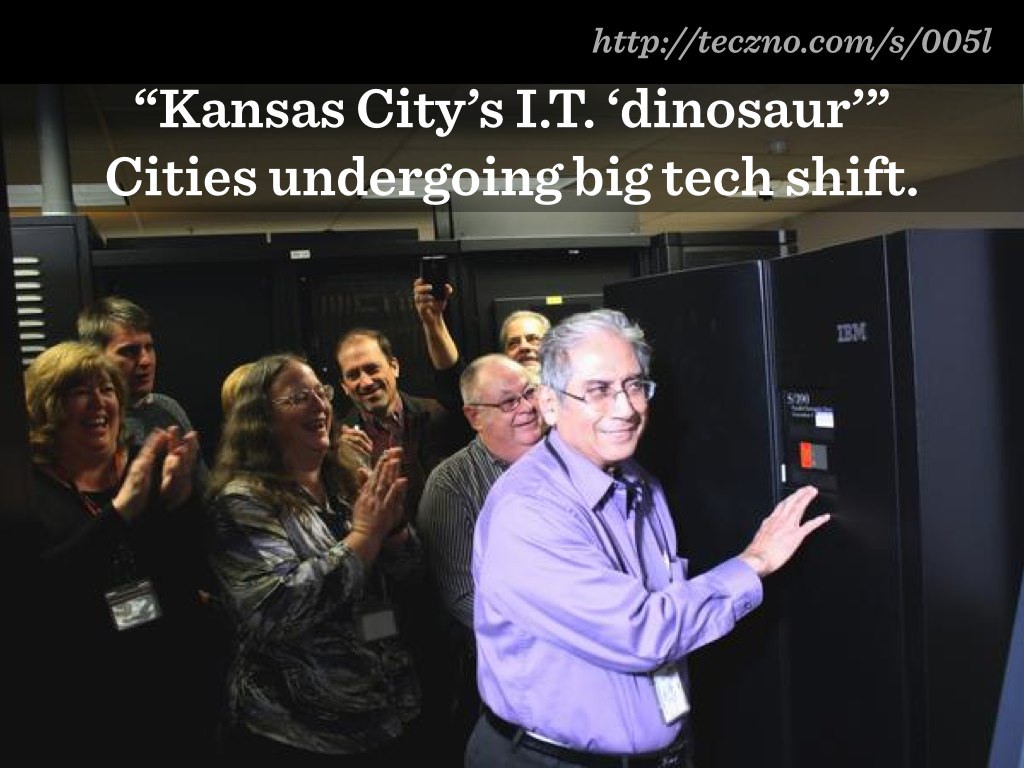
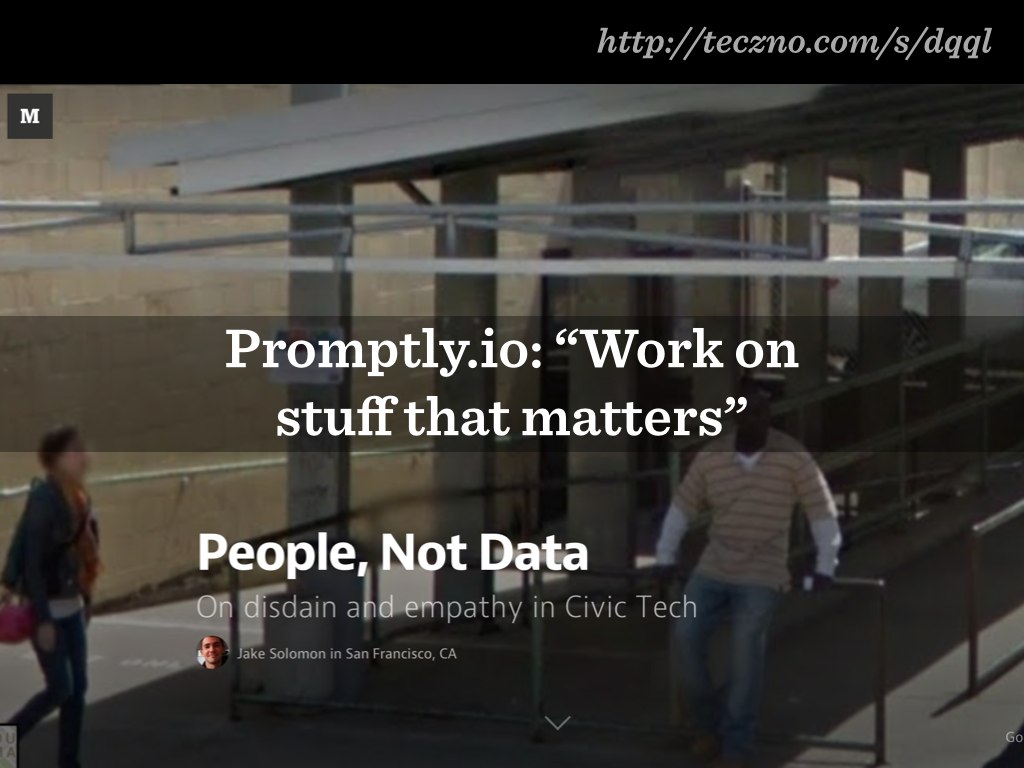
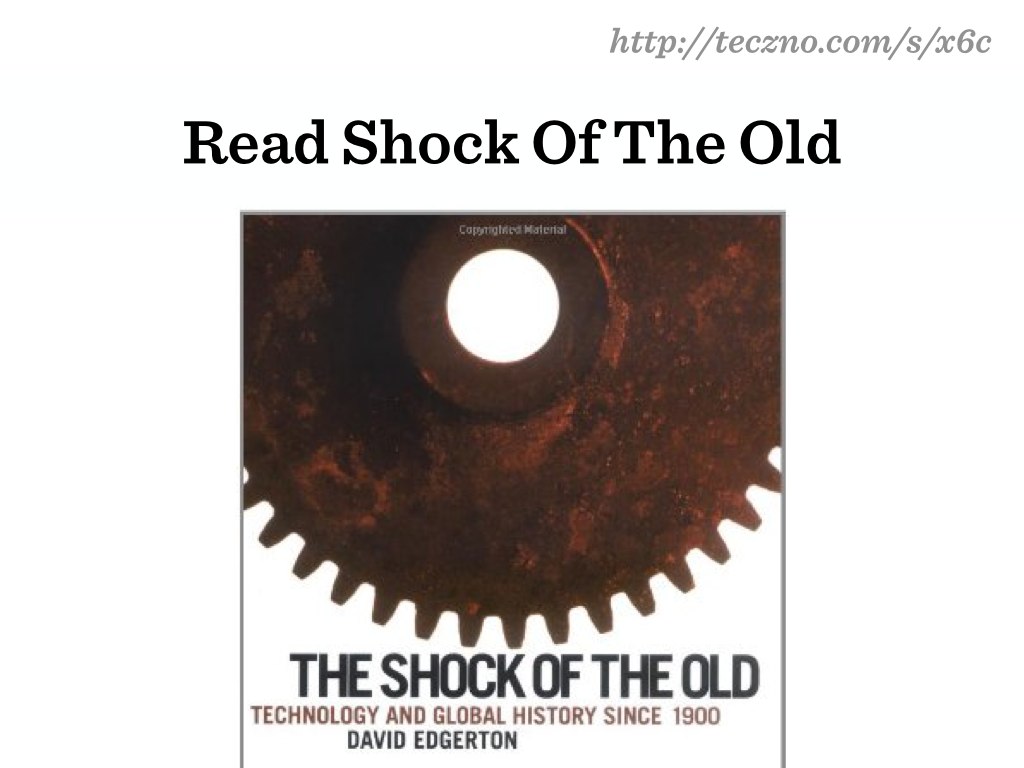
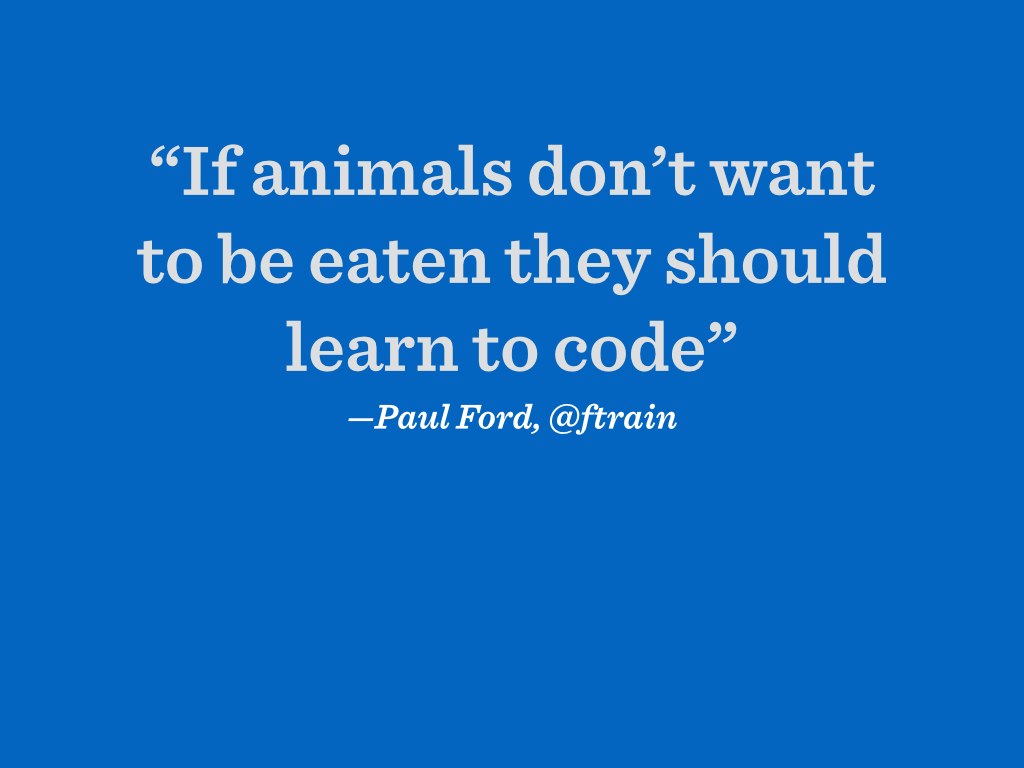
Comments
Sorry, no new comments on old posts.